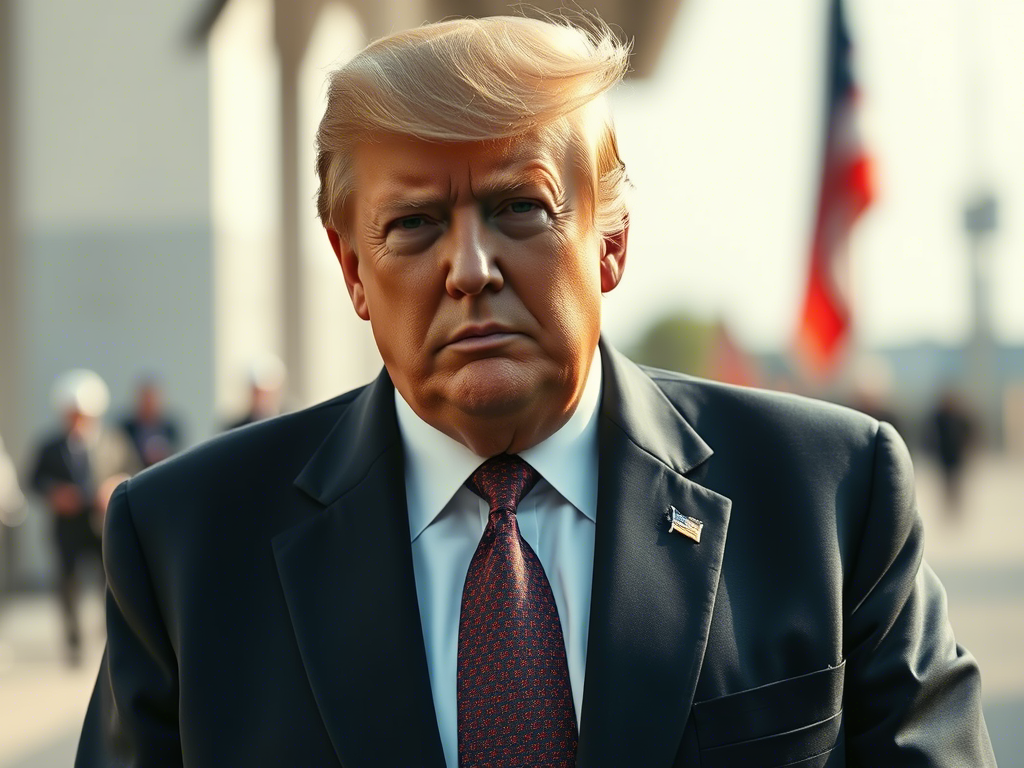What Mexico Can Expect from Donald Trump's Second Presidency
In
Log in if you are already registered
Donald Trump's return to the presidency brings a complex array of challenges and opportunities for Mexico. His administration's policies on immigration, trade, and social issues will significantly impact the bilateral relationship between the two nations.
A tougher stance on immigration
Trump's declaration of a "national emergency at our southern border" aims to halt immigration and expedite deportations of undocumented inpiduals. He promises deportations "at a level nobody has ever seen before," which could strain U.S.-Mexico relations, overwhelm border infrastructure, and create humanitarian crises in Mexican border cities. Mexican policymakers must engage proactively with the U.S. to mitigate these effects while ensuring human rights are respected.

Source: Qwen Chat
Escalating trade tensions
Trump's economic agenda includes imposing tariffs and withdrawing from climate-focused agreements like the Green New Deal. Notably, he announced a 25% tariff on all imports from Mexico and Canada, citing concerns over illegal immigration and drug trafficking. These measures have sparked fears of a trade war, potentially disrupting Mexico's export-driven economy. In response, Mexico has considered retaliatory tariffs on U.S. goods, including pork, cheese, and steel. These developments could lead to increased consumer prices and supply chain disruptions across North America.
Cultural and Political shifts
Trump's promise to enforce policies based on "only two genders" and his stance on LGBTQ+ rights highlight a return to conservative social policies that could polarize the region. Mexico, with its progressive laws on gender equality and LGBTQ+ rights, must navigate these cultural differences carefully to prevent ideological disputes from affecting bilateral relations.
Opportunities in diplomacy and trade persification
Despite potential challenges, Trump's presidency offers Mexico opportunities to reframe its role on the global stage. As the U.S. adopts an "America First" agenda, Mexico can strengthen relationships within Latin America, Europe, and Asia. Focusing on multilateralism and regional trade agreements could offset economic risks posed by U.S. policies.
Preparing for the unpredictable
Trump's presidency is often characterized by unpredictability. Statements like renaming the Gulf of Mexico and reasserting control over the Panama Canal reflect a nationalist agenda that Mexico must be prepared to navigate. Additionally, Trump's promises of political retribution and his stance on justice, while primarily affecting U.S. domestic policy, could spill over into foreign relations, especially if he seeks to assert dominance over perceived adversaries.
A call to action for Mexico
Mexico must take a proactive and strategic approach in response to Trump's second presidency. The country can no longer afford a reactive stance—waiting for U.S. policy shifts before formulating a response. Instead, Mexico must prepare for multiple scenarios and build a comprehensive strategy that addresses economic, diplomatic, and security challenges.
- Strengthening its economic resilience: The threat of escalating trade tensions necessitates a persification of Mexico’s economic partnerships. While the U.S. remains Mexico’s largest trading partner, recent tariffs underscore the importance of reducing dependency on a single market. Mexico must accelerate trade agreements with Europe (through the modernized EU-Mexico trade deal), strengthen economic ties with China and the Asia-Pacific through the CPTPP, and deepen regional integration with Latin America. Additionally, Mexico should focus on expanding its internal markets and investing in industrial persification to mitigate the effects of U.S. protectionist policies.
- Enhancing diplomatic leverage: Diplomatic engagement with the U.S. must be strategic, not confrontational. Mexico should use its economic and geopolitical influence to negotiate more favorable terms, leveraging the fact that U.S. industries, particularly automotive and agriculture, rely heavily on Mexican imports and labor. Engaging with key political stakeholders in the U.S., including governors, business leaders, and Congress, can help counterbalance aggressive White House policies. Moreover, Mexico should actively participate in multilateral organizations such as the UN, OAS, and WTO to defend its economic and diplomatic interests on a global scale.
- Managing immigration and border policy: Mexico is at the center of the U.S. immigration debate, often finding itself in a difficult balancing act. Trump’s crackdown on immigration will increase deportations to Mexico and pressure the country to act as a buffer zone for Central American migrants. This necessitates a coordinated policy response that includes strengthening border infrastructure, improving migrant protection programs, and negotiating clear agreements with the U.S. on how deportations will be handled. Mexico should also engage international organizations to ensure that human rights obligations are upheld.
- Navigating cultural and ideological differences: With Trump pushing a conservative agenda, ideological clashes between the two nations may intensify. Mexico must remain firm in defending its social policies while avoiding unnecessary confrontation with the U.S. government. Instead, Mexico can focus on building diplomatic alliances with states and municipalities within the U.S. that support progressive policies and economic cooperation.
- Strengthening internal governance and stability: Mexico's response to Trump's policies will be most effective if the country maintains internal political stability and economic confidence. Strengthening governance, reducing corruption, and ensuring the rule of law will enhance Mexico’s position in negotiations with the U.S. A strong, united front domestically will give Mexico more credibility on the international stage.
Conclusion
The return of Donald Trump presents Mexico with a set of formidable challenges, but it also provides an opportunity for strategic growth and diplomatic innovation. Mexico must move beyond reactive diplomacy and take an assertive role in shaping its future, both in relation to the U.S. and within the broader global economy. By persifying trade partnerships, strengthening diplomatic leverage, addressing border and migration concerns, and maintaining internal political stability, Mexico can mitigate risks and turn challenges into opportunities.
Trump's presidency will test Mexico's resilience and strategic vision. If Mexico can navigate this period with foresight and determination, it has the potential to emerge stronger, more self-reliant, and better positioned in the international arena.




